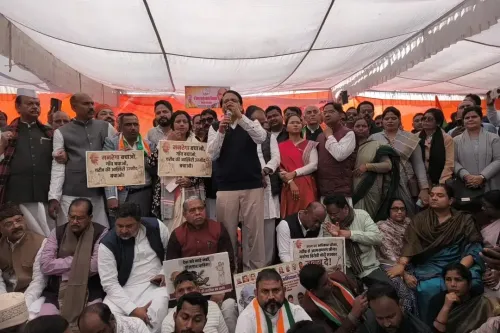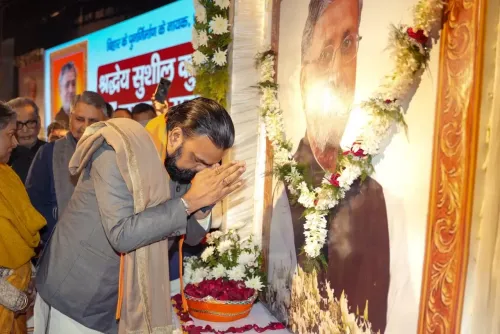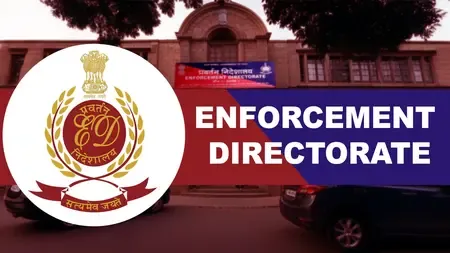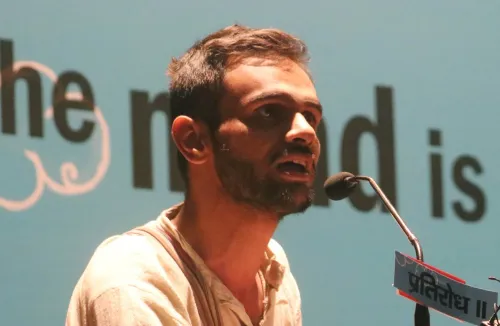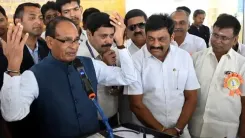How Does the Bihar Mandate Impact Congress and Regional Allies for the 2026 Polls?
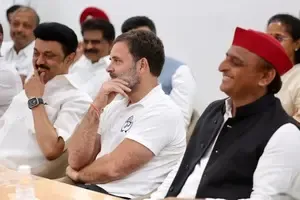
Synopsis
Key Takeaways
- Bihar election results reveal systemic weaknesses within Congress.
- Regional leaders gain more bargaining power post-elections.
- Congress is viewed as a junior partner in several states.
- Local organizational strength is crucial for electoral success.
- The party needs urgent reforms to adapt to changing political dynamics.
New Delhi, Nov 15 (NationPress) The results of the 2025 Bihar Assembly elections have once again highlighted the systemic vulnerabilities within the Congress party, severely restricting the central leadership's influence over regional allies as the high-stakes Assembly elections approach in four states and a Union Territory next year.
The efforts by the national leadership, which included high-profile visits and yatras, have not translated into electoral victories due to the weakness of local organizations and the dominance of regional leaders in candidate selection and ground negotiations.
Continued underperformance indicates to state leaders and regional allies that the central command cannot assure electoral success, undermining the authority needed to enforce discipline or endorse candidates. Consequently, this situation enhances the bargaining power of regional party leaders, who already possess a strong foothold based on their local influence.
Bihar has amplified this situation.
In West Bengal, the Congress will likely need to adhere to the demands of the state unit, as noted by senior journalist Biswajit Bhattacharya. Earlier reports suggested that the high command made changes in the top tiers of the state unit to appease the ruling Trinamool Congress (TMC) leader Mamata Banerjee. Critics argue that the former state chief, Adhir Ranjan Chowdhury, was replaced by Subhankar Sarkar due to his strong anti-Banerjee remarks.
Sarkar, viewed as a more accommodating figure, may not find favor with Banerjee, who has signaled her reluctance to welcome national allies into state politics. Insiders suggest that while she maintains a cordial relationship with Sonia Gandhi, her demeanor towards Rahul Gandhi is notably cooler.
The Left, which has previously allied with the Congress in the state, is reportedly considering a solo electoral venture after experiencing a complete loss while partnering with the long-established party. Senior Congress members acknowledge the potential for loss regardless of their approach.
In Assam, the fallout from Bihar's results may compel Assembly-level allies to demand increased autonomy concerning seat allocation and campaign management. The All India United Democratic Front (AIUDF), led by Badruddin Ajmal, has formed selective alliances with the Congress to consolidate Muslim voter support, though these collaborations have often produced mixed results.
In Tamil Nadu, the political landscape is heavily regionalized, dominated by robust Dravidian parties that view the Congress more as a temporary ally than a central figure.
The outcome in Bihar strengthens the idea that Congress is a junior partner, with the ruling Dravida Munnetra Kazhagam (DMK) and other local entities poised to leverage this perception to demand operational independence during campaigns and influence seat distribution.
The Congress is no longer in a position to negotiate for more seats with the DMK or confidently engage with actor-turned-politician Vijay’s Tamilaga Vettri Kazhagam (TVK).
DMK leaders have expressed caution regarding such outreach. Recently, Tamil Nadu Deputy Chief Minister Udhayanidhi Stalin made remarks hinting at the Congress’s political symbol that have sparked discussions.
With the weight of the Bihar election results acting as a metaphorical albatross, the Congress can no longer afford to venture beyond the DMK's extensive influence and must concede to the larger partner's stipulations.
In Kerala, political analyst T.J. Srilal asserts that the BJP is still struggling to gain a foothold. The upcoming 2006 elections will again see a direct competition between the ruling Left Democratic Front (LDF) alliance and the Congress-led United Democratic Front (UDF).
The Congress is grappling with an abundance of leaders vying for the Chief Minister position. Party MP Shashi Tharoor hinted in July at an independent agency survey reflecting a notable anti-incumbency wave, naming him as a potential Chief Ministerial candidate for the Opposition bloc.
Since Tharoor’s candidacy against Gandhi’s choice of Mallikarjun Kharge for the party presidency and his public endorsements of certain government policies, his relationship with the Congress high command has been strained.
In response to this rift, state Congress leader K. Muraleedharan remarked that Tharoor must first clarify his party allegiance.
Political analysts like Srilal suggest that other leaders, including General Secretaries Ramesh Chennithala and K.C. Venugopal, are also among those aspiring for leadership roles.
"The Congress has missed opportunities to challenge the government effectively, and I would not be surprised if the LDF manages an unexpected third consecutive term," remarked the veteran journalist.
The situation in Bihar illustrates that the Congress’s future in state politics hinges less on directives from New Delhi and more on how swiftly and effectively the party can revamp its local organizational structure.


